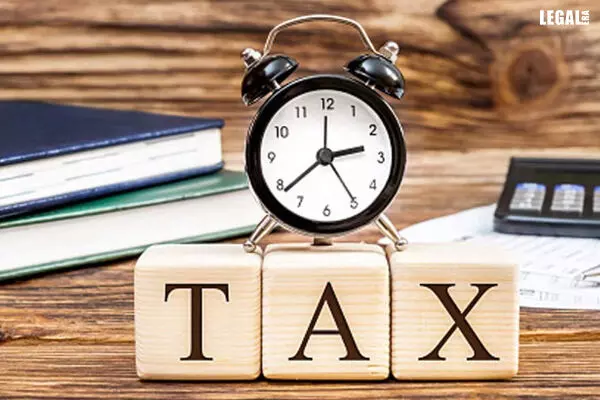- Home
- News
- Articles+
- Aerospace
- AI
- Agriculture
- Alternate Dispute Resolution
- Arbitration & Mediation
- Banking and Finance
- Bankruptcy
- Book Review
- Bribery & Corruption
- Commercial Litigation
- Competition Law
- Conference Reports
- Consumer Products
- Contract
- Corporate Governance
- Corporate Law
- Covid-19
- Cryptocurrency
- Cybersecurity
- Data Protection
- Defence
- Digital Economy
- E-commerce
- Employment Law
- Energy and Natural Resources
- Entertainment and Sports Law
- Environmental Law
- ESG
- FDI
- Food and Beverage
- Gaming
- Health Care
- IBC Diaries
- In Focus
- Inclusion & Diversity
- Insurance Law
- Intellectual Property
- International Law
- IP & Tech Era
- Know the Law
- Labour Laws
- Law & Policy and Regulation
- Litigation
- Litigation Funding
- Manufacturing
- Mergers & Acquisitions
- NFTs
- Privacy
- Private Equity
- Project Finance
- Real Estate
- Risk and Compliance
- Student Corner
- Take On Board
- Tax
- Technology Media and Telecom
- Tributes
- Viewpoint
- Zoom In
- Law Firms
- In-House
- Rankings
- E-Magazine
- Legal Era TV
- Events
- News
- Articles
- Aerospace
- AI
- Agriculture
- Alternate Dispute Resolution
- Arbitration & Mediation
- Banking and Finance
- Bankruptcy
- Book Review
- Bribery & Corruption
- Commercial Litigation
- Competition Law
- Conference Reports
- Consumer Products
- Contract
- Corporate Governance
- Corporate Law
- Covid-19
- Cryptocurrency
- Cybersecurity
- Data Protection
- Defence
- Digital Economy
- E-commerce
- Employment Law
- Energy and Natural Resources
- Entertainment and Sports Law
- Environmental Law
- ESG
- FDI
- Food and Beverage
- Gaming
- Health Care
- IBC Diaries
- In Focus
- Inclusion & Diversity
- Insurance Law
- Intellectual Property
- International Law
- IP & Tech Era
- Know the Law
- Labour Laws
- Law & Policy and Regulation
- Litigation
- Litigation Funding
- Manufacturing
- Mergers & Acquisitions
- NFTs
- Privacy
- Private Equity
- Project Finance
- Real Estate
- Risk and Compliance
- Student Corner
- Take On Board
- Tax
- Technology Media and Telecom
- Tributes
- Viewpoint
- Zoom In
- Law Firms
- In-House
- Rankings
- E-Magazine
- Legal Era TV
- Events
ITAT (Mumbai) Excludes Maintenance Charges from Taxable Income

ITAT (Mumbai) Excludes Maintenance Charges from Taxable Income
The Mumbai bench of the Income Tax Appellate Tribunal (ITAT) has ruled in favour of Neelyog Builders Pvt. Ltd. (the assessee), determining that maintenance charges received by the assessee from its tenants are not taxable in the hands of the assessee.
The assessee, a land development and construction company that specialises in slum rehabilitation projects, generated income from property rentals. During the relevant tax year, the assessee filed its income tax return. The return was selected for limited scrutiny, and statutory notices under sections 143(2) and 142(1) of the Income Tax Act were issued for assessment.
During the assessment process, it was found that the assessee had rented out multiplex and office spaces at Neelyog Square to Fame India Ltd, Future Generali India LIC Ltd, and Future Generali India Insurance Co Ltd. Discrepancies were found between the income declared in the profit and loss account and the information available from the Annual Information Return (AIR) and Income Tax System (ITS). Specifically, there was a discrepancy of ₹13,00,659.
In response to inquiries regarding the £13,00,659 discrepancy, the taxpayer argued that this sum constituted maintenance charges and did not constitute part of their income.
The Assessing Officer (AO), however, included the amount of £13,00,659 in the taxpayer's overall income within the 'income from house property' category, asserting that the taxpayer had failed to provide sufficient documentary evidence to establish that this amount was received as maintenance charges.
Subsequently, the Commissioner of Income Tax (Appeals) [CIT(A)] dismissed the appeal lodged by the taxpayer on this matter. The CIT(A) indicated that the tenants had deducted tax at Source (TDS) on the gross amount, which included the maintenance charge. The taxpayer had claimed the entire TDS amount.
Furthermore, CIT(A) mentioned that when computing the gross rent received by the property owner, the maintenance charge should be included since it is the responsibility of the property owner.
The two-member bench consisting of Prashant Maharishi (Accountant) and Sandeep Singh Karhail (Judicial) noted that the sum of ₹13,00,659 had been deposited directly into the maintenance account by Fame India Ltd, Future Generali India LIC Ltd, and Future Generali India Insurance Co Ltd, and not in the name of the taxpayer.
The bench also noted that the maintenance charges were deposited into a separate bank account, which did not belong to the assessee. Instead, the account was maintained by the Kapole Co-operative Bank Ltd. Society was specifically designated for the collection of maintenance charges and for making payments related to the purposes for which the collected sum was intended.
The bench also noted that a previous case involving the same assessee had already considered the taxability of maintenance charges. In that case, the tribunal had ruled in favour of the assessee, concluding that common maintenance charges could not be considered as the assessee's income. The tribunal had also directed that the TDS credit granted to the assessee against the said receipts should be withdrawn.
As a result, the Tribunal issued an order to remove the inclusion made by the Assessing Officer in relation to the maintenance charges. Furthermore, the panel directed that any Tax Deducted at Source (TDS) previously provided to the taxpayer for the maintenance charges should be revoked.


